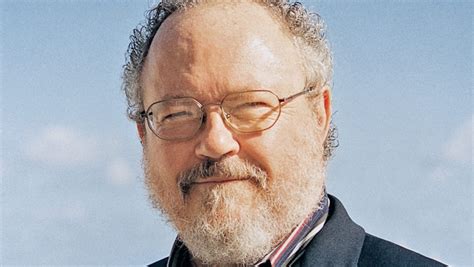A Quote by Willard Van Orman Quine
It is one of the consolations of philosophy that the benefit of showing how to dispense with a concept does not hinge on dispensing with it.
Related Quotes
Philosophy by showing - including philosophy in literature - does truly valuable work in leading us to new perspectives from which our arguments can then begin. It does so by introducing new synthetic complexes, which we then reflect on from various points of view. When the complexes survive and grow, that initial showing has been philosophically decisive.
In elaborating how "philosophy by showing" works, and in defending the idea that literature and music can contribute to philosophical "showing", I am also doing something more standardly philosophical. But I view most of the book as an interweaving of philosophy and literary criticism. If that entails a broadening of a standard idea of philosophy, it's a broadening I'd like to see happen.
One of the things I want to do in the book is to explore how philosophy can be done in literature. I start doing that in the first chapter, by introducing the idea of "philosophy by showing". What literature/philosophy shows is how to look at some important facets of life in a new way, thus changing the frame in which subsequent philosophical argument proceeds.
The word "veganism" denotes a philosophy and way of living which seeks to exclude - as far as is possible and practical - all forms of exploitation of, and cruelty to, animals for food, clothing or any other purpose; and by extension, promotes the development and use of animal-free alternatives for the benefit of humans, animals and the environment. In dietary terms it denotes the practice of dispensing with all products derived wholly or partly from animals.
The fact that man produces a concept "I" besides the totality of his mental and emotional experiences or perceptions does not prove that there must be any specific existence behind such a concept. We are succumbing to illusions produced by our self-created language, without reaching a better understanding of anything. Most of so-called philosophy is due to this kind of fallacy.
...there ... remains a huge following [of Ayn Rand's philosophy] of those who ignore the indiscretions, infidelities, and moral inconsistencies of the founder and focus instead on the positive aspects of her philosophy. There is much in it to admire, if you do not have to accept the whole package... Criticism of the founder or followers of a philosophy does not, by itself, constitute a negation of any part of the philosophy... Criticism of part of a philosophy does not gainsay the whole.
In student government in high school, I learned how to deal with people, and in college I studied Eastern philosophy. I'm also an avid team-sports fan. I think I just blended them all together and came out with a business management philosophy that combines the Eastern ethic with the Western sport concept, basically.
We are not utopians, we do not “dream” of dispensing at once with all administration, with all subordination. These anarchist dreams, based upon incomprehension of the tasks of the proletarian dictatorship, are totally alien to Marxism, and, as a matter of fact, serve only to postpone the socialist revolution until people are different. No, we want the socialist revolution with people as they are now, with people who cannot dispense with subordination, control, and "foremen and accountants".






































